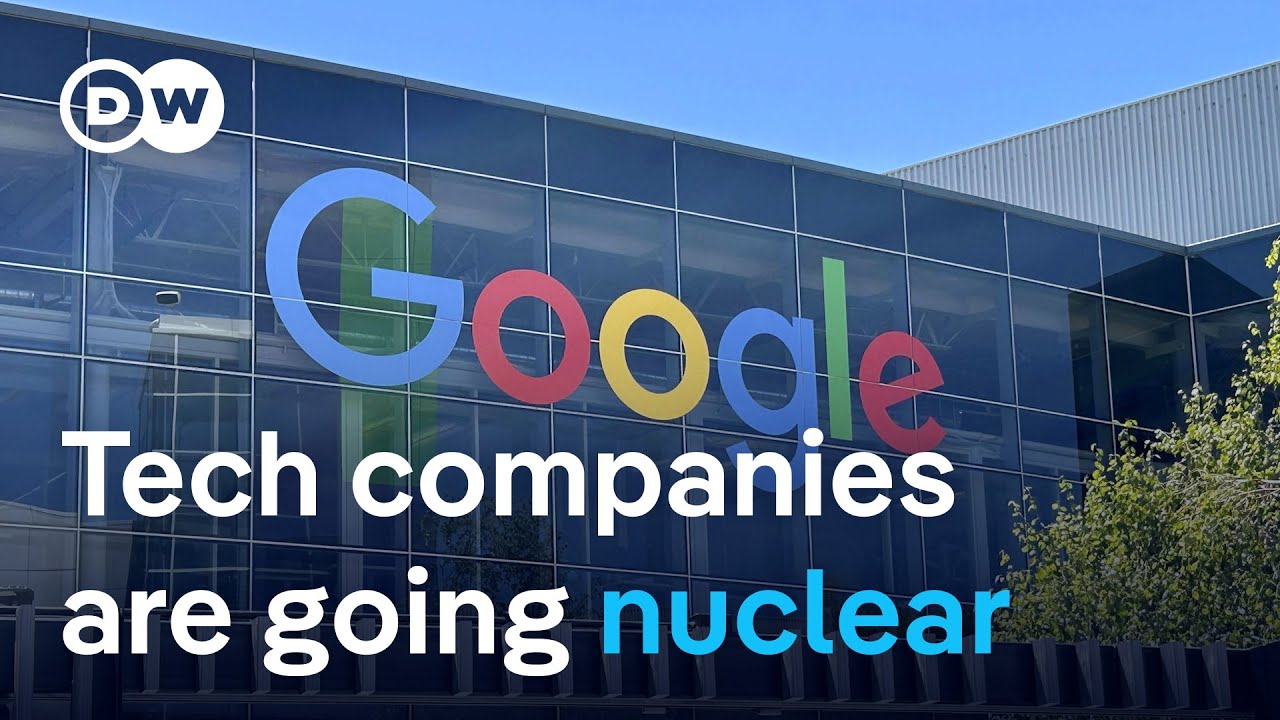The video discusses Google’s agreement to build seven nuclear reactors to meet the growing energy demands of artificial intelligence (AI), highlighting that AI’s electricity consumption is significantly higher than traditional services. Expert Lindsey Gorman emphasizes the necessity of nuclear power for supporting AI infrastructure while addressing concerns about the sufficiency of the timeline for these reactors amidst the rapid growth of AI technology.
The video discusses the increasing energy demands of artificial intelligence (AI) and how major tech companies are turning to nuclear power to meet these needs. It highlights that using AI, such as asking a question to ChatGPT, consumes significantly more electricity compared to a standard Google search. With the potential for widespread AI adoption, the current power grids may struggle to handle the demand, prompting companies like Google, Microsoft, and others to invest in nuclear energy solutions.
Google has signed a deal to construct seven small nuclear reactors to power its AI data centers, with the first reactor expected to be operational within this decade and the others by 2035. This move is part of a broader trend among tech giants to secure reliable and clean energy sources as they expand their data center capabilities to support AI technologies. The video features an expert, Lindsey Gorman, who discusses the implications of this energy shift.
Gorman explains that the energy consumption of AI is immense, with some studies suggesting that AI could account for half a percent of global electricity usage, comparable to the total electricity consumption of Argentina. The push for nuclear energy is driven by the need for substantial power to support the growing infrastructure for AI, as well as a desire to transition to cleaner energy sources in line with climate goals set by governments, including the Biden Administration in the U.S.
The video also addresses concerns about whether Google’s timeline for the reactors is sufficient given the rapid growth of AI. Gorman suggests that the demand for energy will only increase over time, indicating that the need for nuclear power will extend beyond the next few years into the foreseeable future. She emphasizes that while nuclear is not the only solution, it is a critical component of the energy strategy to support AI’s evolution.
Finally, the discussion touches on the potential for Google to leverage its nuclear power capabilities beyond its own needs, possibly supplying energy to other tech companies or even domestic consumers. Gorman draws a parallel between AI and oil, suggesting that both are becoming essential resources in the modern economy. The conversation concludes with a recognition of the intertwined future of energy and AI, highlighting the innovative approaches being taken to address the challenges posed by this technological revolution.
